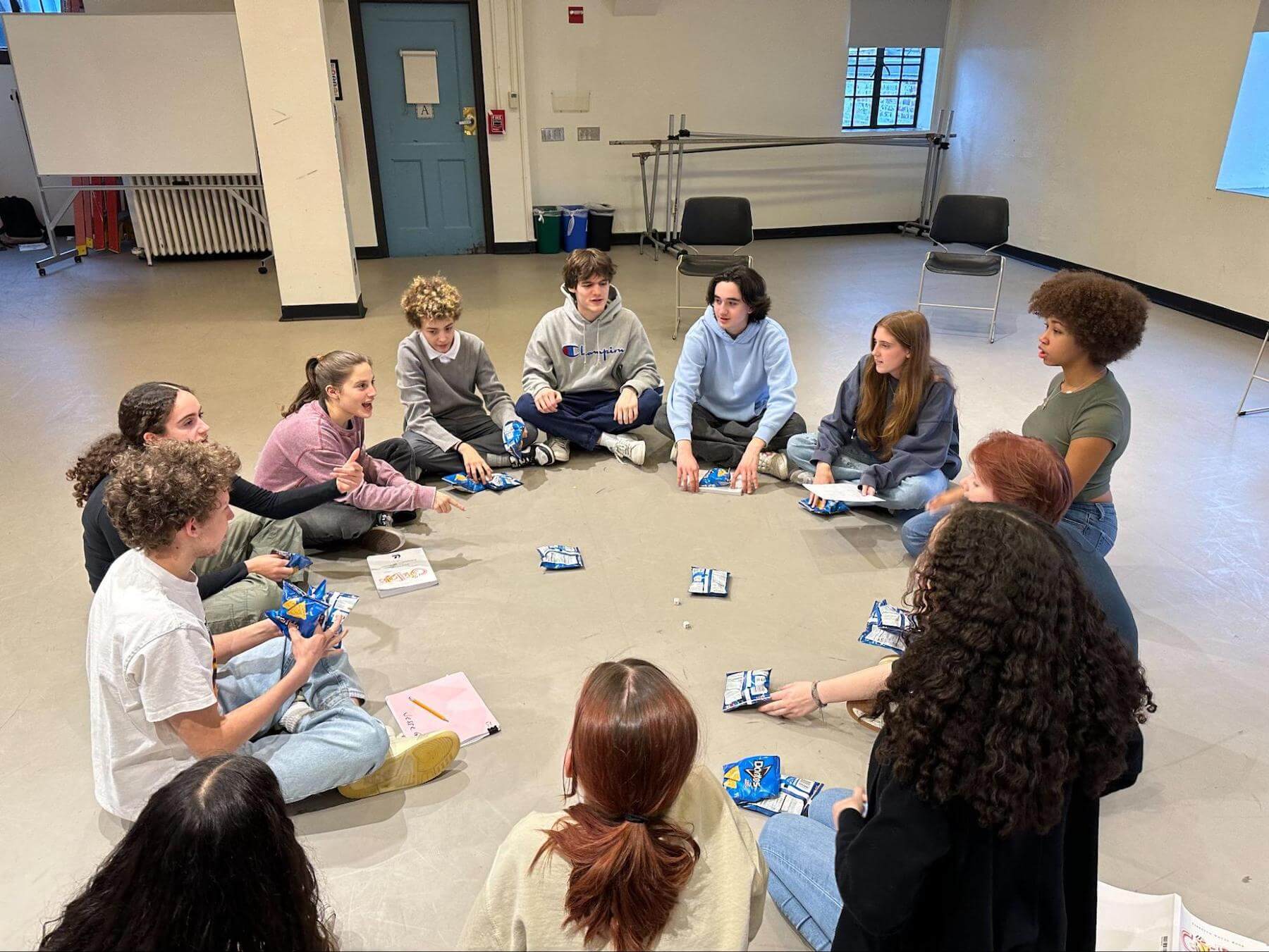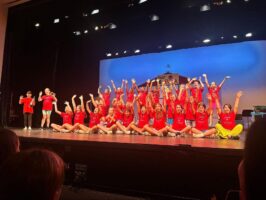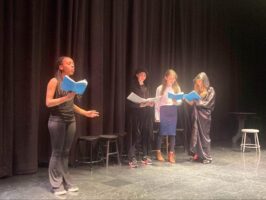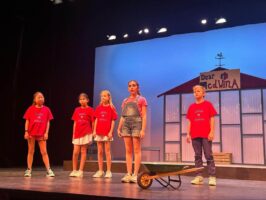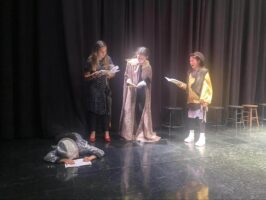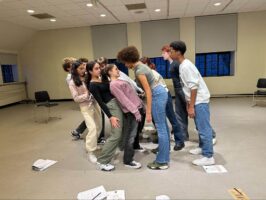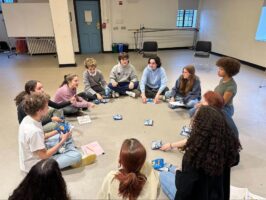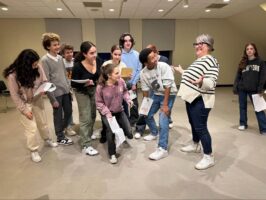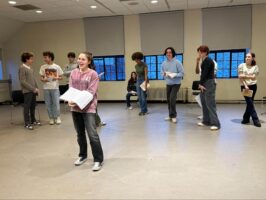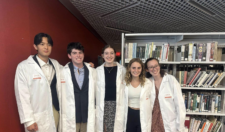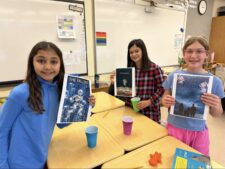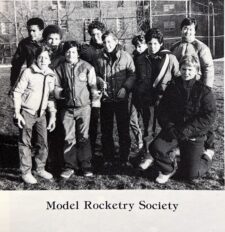All the world’s a stage, and at Fieldston Middle and Fieldston Upper, students in the drama and musical productions are constantly discovering the benefits that playful yet dedicated preparation and rehearsal for onstage exploration have on their everyday lives.
From 6th to 12th Grade, students new to performing arts and those with experience have opportunities to join divisional musicals and drama productions throughout the academic year after initial exposure in the classroom. All 6th Graders are first introduced to the skills, thoughts, and ideas that shape the performing arts in their eight-week Project Arts class. Onstage, where many students may choose to perform for the first time, the year kicks off with a 6th Grade musical performance. “It’s a wonderful opportunity for new students to get to know each other and make friends in a collaborative environment,” says Theatre and Dance Teacher Stephanie Stone.
In addition to taking theatre classes as part of an arts rotation and eventually choosing to take classes such as improvisation, directing, and playwriting, 7th and 8th Graders may also participate in a drama workshop, which entailed two one-act plays by Don Zolidis this year, and then their own musical production. Often working with material tailored to their age group, the student cast embraced the hilarity of the 6th Grade musical “Dear Edwina Jr.,” which older Fieldston Middle students will parallel in their upcoming production of a comedic show, “Once Upon a Mattress.”
During a time when students may struggle with insecurity and confidence, theatre rehearsal is not only a place to build relationships but also to strengthen self-esteem.
“Theatre allows you to discover more about yourself and gives you the confidence to do more things that you might not always think you are able to do,” says Jarius M. ’29. “What I value most about my school theatre experience is that I get to have a lot of fun and try new things with my friends.”
“Collaboration is crucial to the theatrical process,” Stone says. “In order to collaborate, the cast needs to take risks. Trust is crucial to risk-taking, so this is a major focus in class and rehearsal. We do this through working in pairs and small groups, including improvisational acting exercises, and learning how to give feedback in a constructive, helpful manner. We also stress that every voice matters in this space, no matter your identity.”
At Fieldston Upper, students may pursue other aspects of theatre in classes such as stagecraft, directing, playwriting, and more. These skills culminate in the production rehearsal space, and as this year’s musical cast and crew prepare for their spring production of “Guys and Dolls,” it’s clear that this process is a playground for creativity to thrive.
“Acting requires a sense of “play” in order to feel free enough to take risks, to explore new ideas, to communicate in body and voice, and to be open to collaboration,” says Theatre and Dance Department Chair and musical director Clare Mottola. “This play allows actors a kind of freedom to imagine their characters and their circumstances. And, of course, this play allows actors to always engage with the others; they share the space in active and exciting ways.”
At a recent “Guys and Dolls” rehearsal, students meticulously walked through their blocking, or staging, of scenes, making notes in their scripts, asking questions, and taking time to laugh. The cast discussed what movements felt most natural while student stage managers logged every placement. The group even experimented with a leaning motion in unison, immediately exclaiming together over its success.
“We encourage a space wherein all members of the company know that the integrity of the process relies on kindness and care above all else,” Mottola says. “It is from these places that joy,fun, risk-taking, and trust all infuse the company. Like any collaboration or team, it takes time, and when it happens, it’s pretty magical.”
“One of the most beautiful things about theatre is that it gives me a sense of release from the constant stressors surrounding me,” says Sylvie P. ’25. “This release lets me be silly and playful without fear of judgment from those around me. Theatre has reminded me to take things less seriously! I’ve learned that there’s always time to take a break and be silly.”
“I find that rehearsals are an amazing bonding experience,” Noa S. ’25 says. “Since we’re all trying new things and experimenting with characters, we have to be vulnerable with each other. This vulnerability allows for more meaningful connections where we can all play with new ideas and connect with each other through our creativity.”
At the heart of this creative play is the chance for students to develop a well-rounded mindset that they can carry into other areas of their lives as they grow.
“Theatre education is rooted in understanding ourselves, understanding our world, and understanding the material; we’re constantly asking why something matters, what its meaning is and how it can effect change in ourselves and others,” Mottola adds. “It is where students get an education of the heart, mind, and body with a kind of simultaneity that supports all they do. A theatre student leaves our space able to be their fullest, most empathic, creative, thoughtful self in all they do!”
